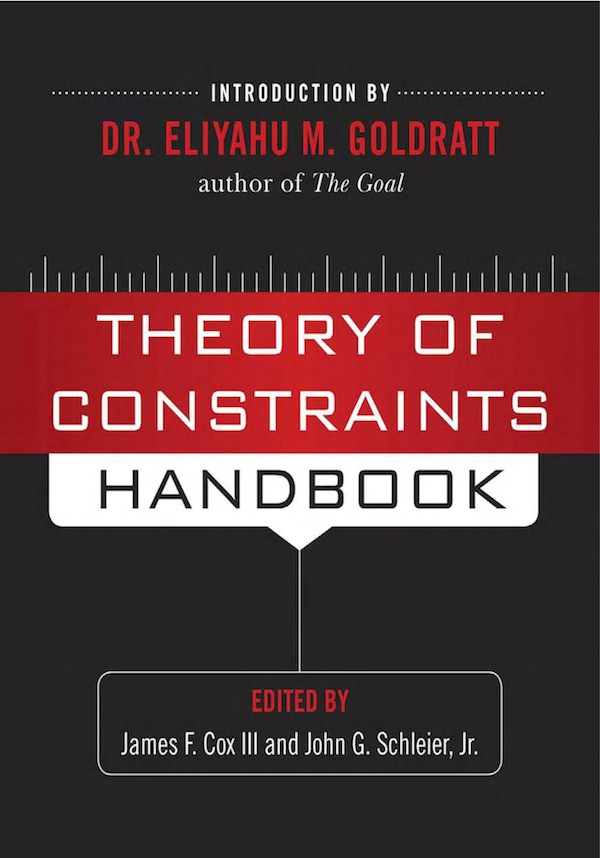Complex Environments (Chapter 35 of the Theory of Constraints Handbook)
Daniel P. WalshInfo
Level of TOC knowledge acquired:
Advanced and IntermediateLength:
23 pagesDesigned for:
Consultants, Executives, Implementers, Leaders, Managers, Project Managers and Shop Floor workersTopics:
Finance and Measurements and Operations/ProductionApplication:
Buffer Management, Drum-Buffer-Rope and Throughput AccountingLanguage:
EnglishFormat:
DownloadShare
Recommend
If we view our organization as a system, then by definition all of the activities are connected. At first glance, they may appear to be independent of each other but in reality, any action taken by one of the activities will impact the others. Then it follows any real and lasting change for the better must be based on a systems approach; all changes must not just improve a local activity, but rather the entire organization.
There are two characteristics of all systems (Goldratt and Cox, 1984): dependency of variables or activities and fluctuation (more commonly referred to as variability). Even if this tenet of improvement is recognized and accepted, it will immediately create a conflict with existing metrics.
This conflict highlights the requirement for an overarching common set of metrics for evaluating individual contributions of all activities while establishing connectivity to the performance of the organization as a whole. Once these new metrics are in place and effective management tools assessing the impact of internal and external variability are being used, then the variability can be evaluated quickly and corrective action taken to protect the organization’s performance.
Content:
- Brief Background
- Guiding Strategies
- Throughput Accounting
- A Holistic View
- Tools Selection
- Defining the System
- Applications
- Summary and Discussion
Comprehensive coverage of the Theory of Constraints
Complete Table of contents of the Theory of Constraints Handbook
- I: What is TOC?
- II: Critical Chain Project Management
- III: DBR, Buffer Management, and Distribution
- IV: Performance Measures
- V: Strategy, Marketing, and Sales
- VI: Thinking Processes
- VII: TOC in Services
- VIII: TOC in Complex Environments
- Theory of Constraints in Complex Organizations
- Applications of Strategy and Tactics Trees in Organizations
- Complex Environments
- Combining Lean, Six Sigma, and the Theory of Constraints to Achieve Breakthrough Performance
- Using TOC in Complex Systems
- Theory of Constraints for Personal Productivity/Dilemmas
- IX: Summary
About the Authors:
James F. Cox III, Ph.D, CFPIM, CIRM, holds TOCICO certifications in all disciplines. He is a Jonah's Jonah, Professor Emeritus, and was the Robert O. Arnold Professor of Business in the Terry College of Business at the University of Georgia. Dr. Cox has written three books on TOC.
John Schleier holds TOCICO certifications in all disciplines. He was President and Chief Operating Officer of the Mortgage Services Division of Alltel, Inc., Executive Vice President of Computer Power, Inc., and Director of Office Systems and Data Delivery for IBM.







































